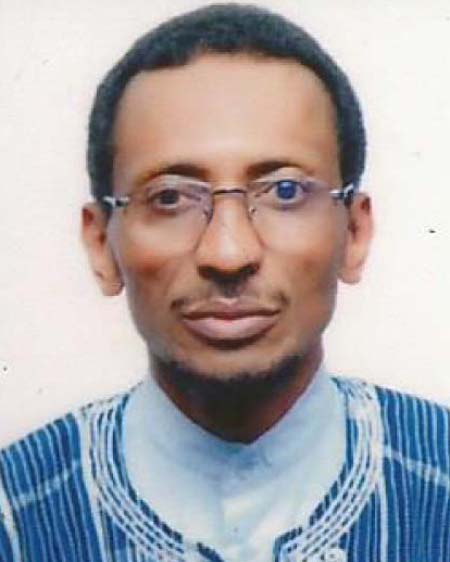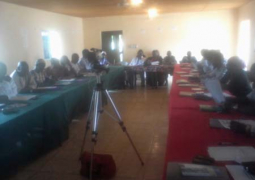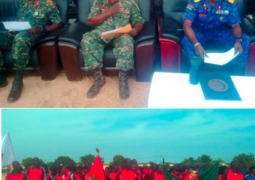
The
ideas of democracy and development belong together. Both have evolved over a
very long period, through peaceful and violent means, into the idea of
democratic development. To Pa Amilcar Cabral, one of the most inspiring minds
that set out to end brutal, colonial misrule by the Portuguese state, both
concepts converge to serve the cause of the people. Ultimately, that is.
In
Unity and Struggle, he reminds us that the people do not struggle just for the
ideas in any one’s head, but for material benefits. Education and food
security, for shelter and good health, especially for the children, that make
us toil every day. This drive of the people for human dignity, through
democratic and other means, is the essence of development. It proved a winning
recipe in defeating Portuguese colonialism in Cape Verde and Guinea Bissau,
under the leadership of the Party for the Independence of Guinea Bissau and Cape
Verde (PAIGC). He and Sister Titina Silla, for example, were assassinated
before independence, which was still achieved in 1974. They, and countless
others, did not die in vain.
The
liberation struggle against the Portuguese state’s dictatorship also succeeded
elsewhere, in Mozambique, Angola and even Portugal. And about two decades
later, the brutal, apartheid regime was also defeated. Ultimately, the
democratic will of the people and the leadership prevailed, in Africa and
elsewhere.
Democracy
and Development Disharmony
So,
can democracy be in the way of development? It depends on the form and content
of democracy. Clearly, history teaches that colonial or racial democracy, for
example, obstructs development, because it is exclusive and brutal. It serves racist
minority and class interests, with brutal force. Development, on the other
hand, is the inclusive well-being of the people, in a largely peaceful
environment. The victorious struggles against enslavement and colonial
brutality, in law and justice over the centuries, are proof enough. And so are
the continuing global struggles for gender equality, inclusive wealth
distribution and health for all. For those who care to see, and be inspired to
act for improvement, there is centuries-old evidence of disharmony between
democracy and development. We have another reminder of this genesis of the
democratic idea towards inclusive development, the on-going democratic struggle
against Greek austerity measures in the Euro zone. With about a fourth of
national output lost, a fourth of the labour force out of work, and the living
conditions worsening for many, including pensioners, the Greek people are
resisting. And so are the Portuguese people, for example. Both have put
anti-austerity parties in government, even if this empowerment is much
constrained by the rich creditors and top bureaucrats.
From
the time of Greek city-state democracy some 2500 years ago, we learnt that
slaves and women, the majority, were excluded. It was thus a democracy for the
minority property or slave owners, the anti-thesis of inclusive development.
Today, under exclusive, global capitalist democracy, the real Greek majority
have voted against their socio-economic suffering, including against onerous
debt and mass unemployment. But as we have observed, an oppressive austerity
program is still being imposed, instead of adequate debt re-structuring and
solidarity taxation of the rich. Greek democracy is now majority-based, but
inclusive development remains constrained by the material interests and
“free-market” ideology of the nouveau riche minority.
Democracy,
therefore, is a form of state that cannot be an end in itself. That end is the
well-being of the people; development that is inclusive. And where achieving
development through the democratic vote is blocked, by brutal or other means,
violence is certain to erupt. It is a bitter lesson of history.
Guinea
Bissau, among others, fought for democracy, and won for development. However,
the country is still struggling to form a democratic state, given the military
interventions and civil strife that followed independence. As with its former
colonizer, Portugal, and Greece of today, the democratic state under capitalism
is no guarantor of development. In that specific context, the disharmony between
democracy and development is persistent. Exploitative, capitalist democracy, in
peace or war times, stands in the way of development.
Why,
not even the so-called multi-racial, capitalist democracy of South Africa or
the United States is a guarantor of development. The deadly attacks in the
town-ships, and protests of mine-workers and students in South Africa remind us
of this fact. Protests against police brutality and socio-economic injustice by
the #Black-lives-matter and 99-percent movements in the United States echo the
same.
Democratic
Development
As
the wheel of history turns, persistent disharmony begets permanent struggle.
For centuries, therefore, the many have struggled to share the privileges
created by all, but enjoyed by the few. Nowhere is this human effort for
dignity more evident spatially than in the cities. They represent a mass
concentration of people, and thus a great pool of creativity for development. A
lot of wealth is created in this urban area, accounting for a greater share of
output than the sparsely populated rural area. But the task remains as to how
society achieves well-being for all who toil for the wealth, in both urban and
rural areas? And how the working people, particularly the women, youth and
elderly, are affected?
To-date,
tremendous wealth has been created, in trillions of US Dollars, Euro, Chinese
Yuan, or the futuristic Afro. The greatest obstacle to development, however, is
still the inequality of wealth and income from exploitation. How can 1 percent
of the population control about 50 percent of the wealth that generates income?
That is, the land, stocks, bonds and other securities. As a derivative of the
legacy of enslavement and colonial misrule, such a concentration of wealth is
immoral stealing and bad economics. Besides, it is a historic recipe for
political and civil strife, and eventually for violent, economic disaster.
How
can the system create adequate jobs, when about 90 percent of the population
own only about 10 percent of the wealth? How could the exclusion of the
ingenuity of about 50 percent or two-thirds of the people, females or the
youth, be justified? Clearly, the well-being of the people will always require
the removal of this great barrier of inequality, by any progressive means
necessary.
Democracy,
the state form still evolving towards inclusive content, is ever more expected
to foster development. It is, however, not a guarantor of development, nor a
perfect check-and-balance mechanism. Its related boom-and-bust, or cycles of
creation and destruction of the past, teaches us that fact.
In
that regard, democratic development means merit and transparency; it requires a
data base for fairer wealth and income distribution. Equity also means
regulation, taxation, and even some measure of expropriation, to achieve a fair
distribution of the resources. The costs of wealth creation are socialized, and
so must the benefits be fairly inclusive. As for more empowerment, a voice for
the marginalized must be secured, particularly for the working poor, women and
the youth. As democracy further evolves, it must not to obstruct, but pave the
way for development. Two ideas that belong together, ultimately, find more
harmony in democratic development.
As
guarantors of inclusive development, the people themselves serve as a
democratic baro-meter for their own well-being. They make use of the peaceful,
democratic vote. But when they are obstructed beyond reasonable doubt, the
legitimate use of force becomes inevitable. That is, they have proven to be,
and remain, their own liberators. The leadership they embraced must have been
convinced of the same, Pa Cabral, Madiba Mandela and the rest.
Africa
rising
In
Things Fall Apart, novelist Chinua Achebe reveals the brutal, but sometimes
subtle, penetration of colonial misrule in Africa. How the supposedly
civilizing role of a peaceful religion, supported by an imperial, monarchical
state, put a knife to the things that held the community together, to tear it
apart. The main fictional character, Okonkwo, made this observation, and
likewise met a brutal end.
Tearing-apart,
this was a signature mark on family and community life. The twin traumas of
enslavement and colonial misrule devastated African families and their
communities, and scarred forever the countries carved out of the 1884 Berlin
conference. But Africa is rising above such devastation, the heroic task of
every generation of Africans, with the solidarity of others. Divided Africa and
its diaspora have united, inspired by freedom fighters L’Ouverture and Nkrumah,
by men and women, to keep rising against all the odds. Pan-African struggles
which defeated enslavement and colonial misrule have inspired democratic
development. Not for a “free-market” dogma or its “night-watchman” state, but
for the well-being of the people. It is a model by Africans, indeed. M. Sajo
Jallow
Read Other Articles In Article (Archive)
Alleged theft case heard
Mar 2, 2016, 11:02 AM
Kudos to Japan
Feb 22, 2013, 9:29 AM



